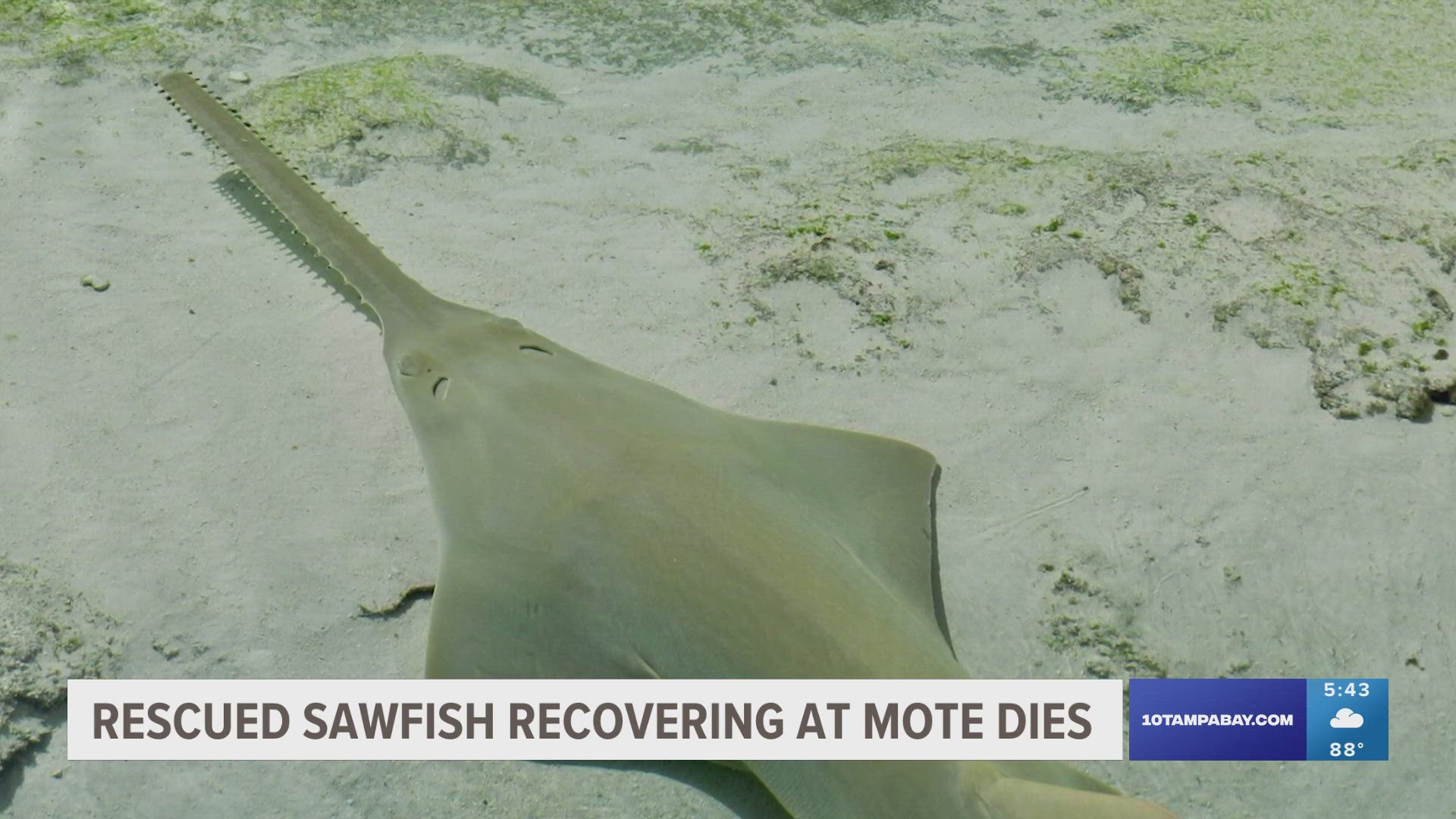SARASOTA, Fla. — A sawfish was euthanized at Mote Marine Laboratory and Aquarium after it received critical care.
The animal was rescued last month when staff from the lab and the Florida Fish and Wildlife Conservation Commission rescued it in the Florida Keys after it was spotted swimming in circles.
It was stabilized and then transported to the Mote facility in Sarasota to get extensive, around-the-clock rehabilitation treatment.
The team at the center tried to improve the animal's condition, hoping it could eventually be released back into its natural environment, according to a news release by Mote. The sawfish was "humanely euthanized" when its condition deteriorated.
"Sadly, even with our best efforts, the animal was ultimately too compromised to recover," Dr. Michael P. Crosby, President and CEO of Mote said in a statement.
The cause of distress is unknown, but Florida Fish and Wildlife will perform a necropsy, which is the animal version of an autopsy, to try to learn more.
Researchers and scientists will continue to attempt additional rescues if sawfish are spotted acting abnormally. Officials said each opportunity to rescue sawfish provides a chance to learn about the cause of the animal's behavior and what the best approaches and practices are to rehabilitate them.
"An effort of this kind has never been attempted before in the United States, and the logistics are complex," the release stated.
The marine mystery
Sawfish have been experiencing abnormal spinning behavior and dying in the Florida Keys since the fall.
So far, there have been 45 sawfish deaths as of Friday, and Florida Fish and Wildlife are still trying to figure out why.
The National Oceanic and Atmospheric Administration announced an emergency response in March for the endangered animals.
Based on data, there are no signs of disease or infection. Florida Fish and Wildlife also ruled out dissolved oxygen, salinity, pH, temperature and red tide as causes of the behavior or death.
In April, the fourth dead small tooth sawfish was found at Everglades National Park.
A decline in deaths?
As officials struggle to find an answer, they are seeing a decreased amount of incidents.
Gil McRae, director of the commission’s Fish and Wildlife Research Institute, said a decrease in incidents of spinning fish over the past two weeks could be a sign of the end, according to the News Service of Florida.
“Everything is pointing to what is likely a naturally occurring species or multiple species of algae that produce low levels of toxins. These are neurotoxins that would be consistent with the behavioral changes that we've seen in the fish,” McRae said.
If you see any sawfish healthy, sick, injured or dead, you should call 844-472-9347 or email sawfish@fwc.com. You can also report abnormal fish behavior and fish kills to the hotline at 800-636-0511.

